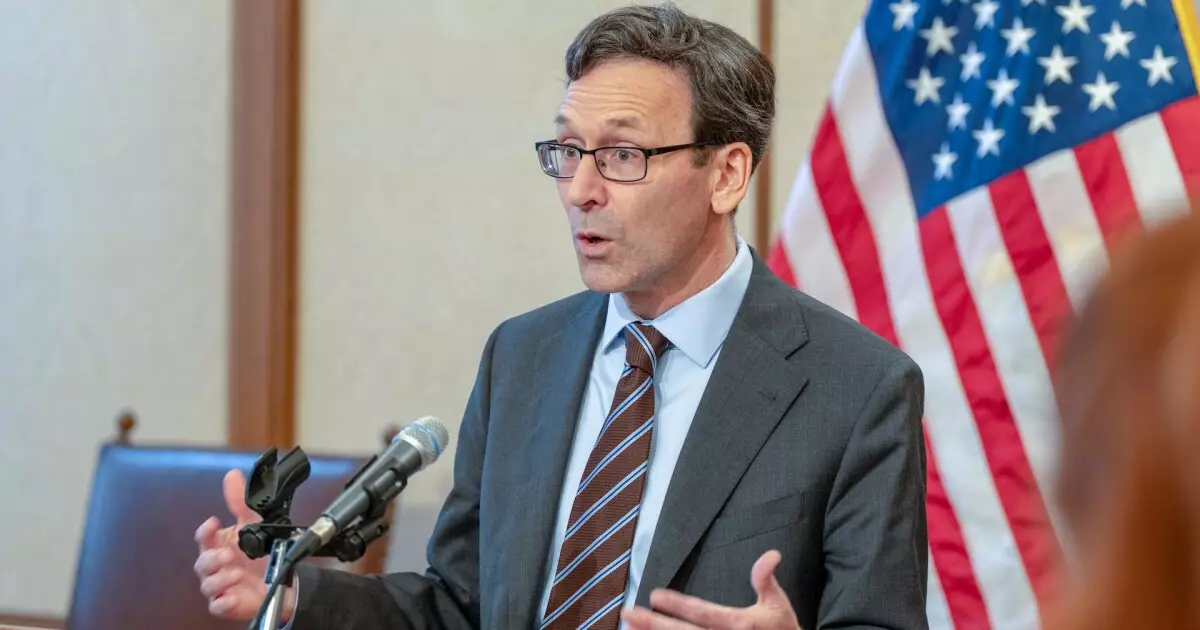The recent denials by the Federal Emergency Management Agency (FEMA) for disaster relief funding requests from Washington and North Carolina raise essential questions about the agency’s efficacy and commitment to supporting states in crisis. During a time when both states faced monumental natural disasters, it becomes profoundly disheartening to witness a federal response that seems both detached and reluctant. The bomb cyclone that battered Washington in November and the catastrophic impact of Hurricane Helene on North Carolina should be sufficient to elicit immediate federal intervention. Instead, we are confronted with bureaucratic incompetence and policy miscalculations that jeopardize lives and livelihoods.
The denial letters, which were delivered without adequate explanations, exemplify a systemic failure within FEMA that cannot be overlooked. For Washington, Governor Jay Inslee had laid out a robust argument for funding, claiming eligibility based on clear federal guidelines. So, where does the line get drawn for assistance? The agency’s lack of transparency in their decision-making processes does nothing to build trust within the communities already grappling with the profound impacts of these disasters. We must ask ourselves: if FEMA refuses to act during catastrophic circumstances, when will they?
Factors Influencing FEMA’s Decisions
The nature of bureaucracy often leaves little room for nuances, especially when a disaster hits. While the guidelines for eligibility exist, they can render a puzzling effect where human suffering is often considered a secondary concern. The need for funding in Washington isn’t merely about repair—it’s about restoration and rebirth after a calamity. To have decisions being made at such high levels with minimal local insight further underlines the limitations of federal agencies like FEMA.
Moreover, the federal government has undergone a significant shift with the changing administrations, creating instability within agencies that are supposed to be composed largely of career professionals dedicated to public service. Reports indicating staff reductions and firings under the Trump administration highlight how crucial expertise within FEMA may have been diminished. In North Carolina, the situation looks bleak as the governor’s calls for additional assistance emphasize the immense financial toll—estimated at a staggering $59.6 billion following Hurricane Helene—this puts significant strain on state budgets already beleaguered by the disaster.
The Political Landscape and Its Consequences
It is hard not to notice the political undercurrents affecting these decisions. While the governors of Washington and North Carolina are both Democrats, opinions align across the spectrum when it comes to basic disaster relief. Politicians should not be more concerned about party lines than they are about the well-being of their constituents. Both states require immediate access to relief—the kind that often gets lost in discussions over federal budgets and appropriations.
Disparities in treatment based on political affiliation bring to light an unsettling truth: the power of federal aid can be wielded as a political weapon rather than a tool for recovery. It seems harrowing that the plea for help from communities ravaged by natural disasters might be regarded through a political lens rather than a humanitarian one. Those who lose their homes and livelihoods through no fault of their own cannot wait for political tides to shift or bureaucratic frameworks to recalibrate.
The Call for Accountability
It is essential for stakeholders—whether they be local leaders, community advocates, or individual citizens—to raise their voices in demanding accountability from FEMA and the federal government. State governments must stand firm in their appeals, not only for the sake of their constituents but as an emblematic effort to push back against a trend that sees disaster recovery sidelined by ineptitude and inefficiency.
The aftermath of such severe storms and disasters should not lead to a patchwork of responses that further delay the recovery process. Instead, it calls for a unified and immediate action plan—a system that accounts for both the need for swift assistance and the importance of strategic recovery planning. As residents of Washington and North Carolina stand in the ruins caused by nature’s fury, their plight must not be transformed into an afterthought in a larger political narrative. The federal response must reflect urgency, compassion, and readiness to restore the communities that have suffered so deeply.

